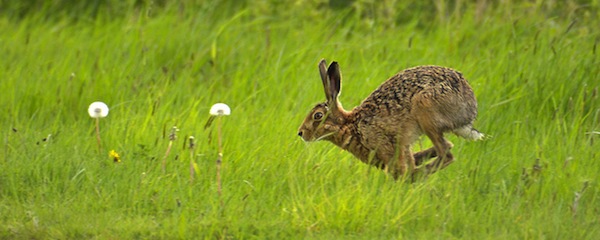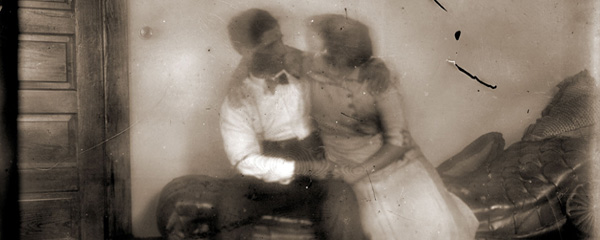
photo © Andrew Pescod, 2014
*
An interview with Zoe Gilbert, winner of this year’s prestigious Costa Short Story Award for her story ‘Fishskin, Hareskin’ – a story about Ervet, a desperately unhappy new fishwife, who finds comfort in her past life.
Zoe Gilbert’s short stories have appeared in anthologies and journals in the UK and internationally. Her work has won prizes from Cinnamon Press, Lightship and the British Fantasy Society amongst others, and has been nominated for a Pushcart Prize. She is currently working on her first folklore-inspired collection of stories, which will form part of her PhD on the short story at the University of Chichester. She lives in London, where she runs a writers’ critique group and co-hosts the Word Factory short story club.
Vicki Heath interviews Zoe Gilbert
Vicki Heath: Zoe, Congratulations again on winning the Costa Short Story Award! It’s a prestigious award, in which the public vote for their favourite short story from a shortlist of six, so quite an affirmation for an emerging short story writer. What prompted you to enter this story in the Costa Short Story Award? And what does it feel like to have been voted the winner by the public, rather than a judging panel?
Zoe Gilbert: I almost didn’t enter the competition precisely because of the public voting element – pretty terrifying! But since it’s free to enter, I sent off my story thinking that at least a filter reader somewhere would read it, and that was it. I was so over the moon to be on the shortlist, I think that got me through the public voting period. I was so surprised to win, and the public vote made it even more overwhelming. It’s just wonderful to know that people chose to read my story, and enjoyed it!
VH: This story and, indeed, your PhD take inspiration from folkloric traditions and tales. Where has this interest come from for you?
ZG: I think my love of Angela Carter, and her twisted re-tellings, kindled my adult interest in folk tales and the more-Grimm-less-Disney fairy tales. The first residential writing course I ever took was on rewriting myths and legends, and I became fascinated by the bluntness, almost template-like feel of folk tales. I started trying to copy that in my writing. I then discovered just how many wild and wonderful ideas there are in folklore and started collecting books of folklore I found in second hand shops – anything from Manx fairy tales to African mythical beasts. It’s a straightforward way to access a treasure trove of inspiration for a writer, and I go back to these books for new ideas.
I think my love of Angela Carter,
and her twisted re-tellings,
kindled my adult interest in folk tales
and the more-Grimm-less-Disney
fairy tales.
VH: Where did the idea for ‘Fishskin, Hareskin’ come from?
ZG: I got a bit obsessed with hares and read entire books about them. By the time I was writing the story I had a hare’s skull perched on my bookcase and an awful lot of notes on the history and folklore of hares. I had to ignore most of it in order not to overload the story. This research wasn’t for my PhD per se, but of course all this reading feeds into my stories, and shapes the feel of the collection which will be part of the PhD. Also, the more I learn about folktales and folklore, the more I can detect these in contemporary stories by other writers – and that will form part of my PhD dissertation.
VH: The rhythms of the story give the writing a soft tone, yet there’s a strong momentum driving it forward – the pressure of Ervet and what she will do when left alone with her baby. In what ways does your writing style reflect the traditional telling of folklore? Or, how does it impact your style?
ZG: I’m so glad you felt a sense of momentum, because I always feel my weak point is plot. I’ve learned to ask those dreaded questions: what is this story really about? What’s at stake? This helps me see where there is human, emotional potential in a story. As I said earlier, I became very interested in the qualities of folk tales, the way they often leave out the inner life of characters and give you an almost childish ‘and then, and then’ type of narrative which forces you to fill in the feeling yourself. I consciously try to avoid description of inner life for that reason. As for rhythm, I think it is so important in short stories, more so than novels, and I practice reading aloud as much as I can, in order to shape sentences and get the rhythmic flow right. Oral storytelling now has a life and style of its own, but as a form it’s a useful influence – especially when considering what can be left out, to keep a story moving.
Early drafts of the story
were much softer and sweeter
– it got colder and smellier
the more I rewrote it!
VH: The baby is, until the end, referred to in terms of a fish, right from the moment ‘Turpin planted inside her the gleaming herring that swelled in her belly, all those months, slithering and flicking its awful tail’. There are also some subtler, wonderfully fishy references in the story that all add to the overall cold tone and feel – ‘Ma Turpin’s hands are barnacled with warts’, the baby’s shawl is ‘fishscale-patterned and smelling as much’, the marital bed is covered with ‘fish-skin sheets’; all delightfully putrid, especially in comparison to the warm image of her father’s home, with its ‘draught of wind-dried wood and old smoke’. Did these come quite naturally in the first draft, or did you find yourself making the story more repellent and sea-like in the editing stages?
ZG: Early drafts of the story were much softer and sweeter – it got colder and smellier the more I rewrote it! In fact I think I ended up with a bit too much fish in there, but it was meant to be incessant and off-putting, as only a fishy smell can be. My relatives who live in a fishing town where herrings are smoked in a huge processing plant have since pointed out to me where this fishy feel might have come from. As I redrafted, I was trying to find a way to express Ervet’s revulsion at her new life, without spelling it out, and that dreadful smell seemed a good way to do it.
VH: The day after her wedding night, Ervet goes to fetch her tamed leverets from her father’s marsh house, despite the tiny hares being bad luck for a fisherman, but she finds her father has killed all three. It’s a haunting image of Ervet standing in the doorway, staring into the ‘skull’s wide eye-hole’ of her favourite hare, ‘until she and the leanshed and her father had all sunk inside it’. Her father isn’t seen again in the story, and all trace of him is gone when she returns to his house with her baby. This is left open to interpretation, but what did you imagine has happened to him?
ZG: Hmm, yes – this was in fact an edit I was planning to do, just adding a line to imply he had left, given up the battle to keep the house on the marsh from crumbling in all that salt wind. In an earlier draft, I intended an explanation involving a storm destroying the house so he had to go elsewhere. In the end though, this is really quite a short story – less than 3,000 words – and it has quite a lot going on in it. I didn’t want to start including backstory or explanations that didn’t really need to be there. I hoped the blankness around Ervet’s father would imply that there is simply no connection anymore between her and him. Now I think about it, perhaps there is an echo there of the rejection she is going through with her baby.
I think if you are spare enough
with the internal detail in a story,
then readers will hopefully find
something to identify with,
even if it’s not what you expect.
VH: Although there’s a very traditional atmosphere in the story, it feels as though ‘Fishskin, Hareskin’ could reflect onto the modern world – a mother struggling to bond with her baby, needing to find a part of herself in the child. Is it important to you for a contemporary reader to identify with the folklore in your stories?
ZG: I think that certain tales and lore become folktales and folklore, and remain in the collective consciousness, precisely because people identify with them. So, using folktales could in some cases create a sort of short cut to connecting with an audience. Interestingly, I’ve had a different interpretation of what is going on in ‘Fishskin, Hareskin’ from almost everyone who has read it to give me critique. This mirrors what happens if you give a room full of people the same folktale to read and ask each of them what it’s about. The answers will all be different and seem to relate to what that reader wants or needs to see. I think if you are spare enough with the internal detail in a story (and I try to avoid ever stating what a character feels, explicitly), then readers will hopefully find something to identify with, even if it’s not what you expect.
 VH: What is it about the University of Chichester that makes the Creative Writing department a good fit for your PhD research and short story writing?
VH: What is it about the University of Chichester that makes the Creative Writing department a good fit for your PhD research and short story writing?
ZG: First of all, my amazing supervisor, Alison MacLeod, who is not only a brilliant short story and novel writer, but shares my interest in the use of the fantastic in short fiction. Secondly, the department has championed other students working on the short story, such as K J Orr, so it feels like a great, supportive place for a short story person to be. Chichester University also hosts the Sussex Centre for Folklore, Fairy tales and Fantasy, which means I can go to their talks and events and top up my inspiration.
VH: We’re currently calling for submissions to our Writing Exercises department, here at THRESHOLDS. Is there a brief short story writing tip you can share with us?
ZG: We all have a lot going on in our lives, and there never seems to be any let up. My tip is to spend five minutes in the morning, before the world starts to take over, and just write something, anything – a bit of a dream, the next sentence in your current draft, a new idea, an observation. Even better, leave it halfway through a sentence. I find this helps my writer-head stay engaged during the day when I have to go to work or do something else. Your brain will remember and work on it, and then you can see what happens tomorrow morning…
VH: Finally, you’re going to be appearing at this week’s Word Factory at Waterstones in Piccadilly, London, on 14 February, with Tessa Hadley and Jon McGregor. Can you tell us a little about Word Factory, and your involvement in the short story club?
ZG: I’ve been going to the Word Factory as an audience member since its inception, drawn by the prospect of seeing writers I admired read their work, and of course by the focus on the short story. The Word Factory has now grown and created apprenticeships, masterclasses, and a huge archive of footage on the website, covering every salon performance. Since last year I’ve been co-hosting the short story club with Sophie Haydock, and we choose classic, exciting or controversial short stories that we think everyone should read. The group is free and the discussion is always lively. It’s a great way to focus on what does and doesn’t work in just one story, and also to discover writers you might not know about – as well as fellow enthusiasts. I hope more writers and readers will come and join us!
VH: Zoe, thank you so much and congratulations again. We look forward to seeing more of your short stories soon.


One thought on “An Interview with Zoe Gilbert”
Comments are closed.